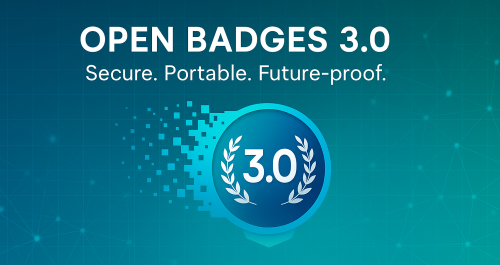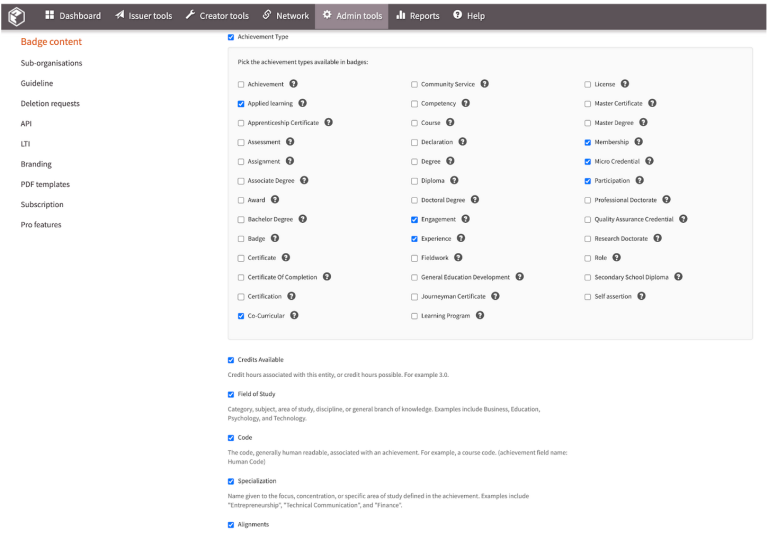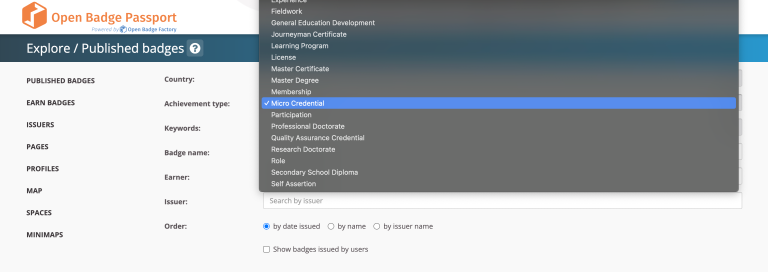
Open Badges 3.0 now in production
What makes Open Badges 3.0 special?
Benefits for badge recipients and issuers
🔒 ENHANCED TRUST AND SECURITY
Open Badges 3.0 enhances the security of digital credentials through advanced cryptographic signatures, making badges significantly more tamper-proof and trustworthy. Due to this improved verification technology, the Open Badge concept has gained considerable credibility. It enables institutions and employers to validate credentials with complete confidence, knowing they’re authentic and unaltered. This generates significant value for badge issuers, recipients, and organizations alike.
Perhaps most importantly, because they are cryptographically signed and contain all the data needed for validation, 3.0 badges maintain their verifiability over time—even if the original issuing platform undergoes changes or ceases operation. This ensures that badge recipients’ achievements remain provable and valuable throughout their careers.
🌐 ENHANCED PORTABILITY
A Seamless Transition
What’s new for badge designers
ADDITIONAL METADATA FIELDS
Open Badge Factory now offers badge designers the ability to utilize additional fields included in the 3.0 standard within the badge editor: Achievement Type • Credit Available • Field of Study • Code (Human Code) • Specialization
⚙️ FLEXIBLE CONFIGURATION
Supporting all forms of recognition
As is clearly visible in the “Achievement Type” classification, the needs and criteria of formal learning have strongly influenced the taxonomy created by the standard developers. This formal orientation is also inherent in the W3C Verifiable Credentials standard itself, which was originally built to recognize formal credentials. It’s obvious that this somewhat confusing classification responds quite poorly to the needs of open recognition for non-formal and informal learning contexts.
For this reason, we have supplemented the classification with several terms that better describe badges issued outside traditional educational settings. Open Badge Factory has always aimed to support open recognition across all learning contexts—formal and informal alike—and we will continue to enhance badge classification based on customer feedback to ensure this continues.
Looking forward
Open Badges 3.0 is overall a sign of positive development. It increases the credibility of Open Badges, expands their potential applications into new sectors, and at least in theory gives badge recipients more freedom and control (learner-centric). In practice, 3.0 works well for badge creation, but there are still many open questions related to ecosystem functionality and especially the development of wallet services, which involves not only technical development but also policy considerations that are still evolving.



